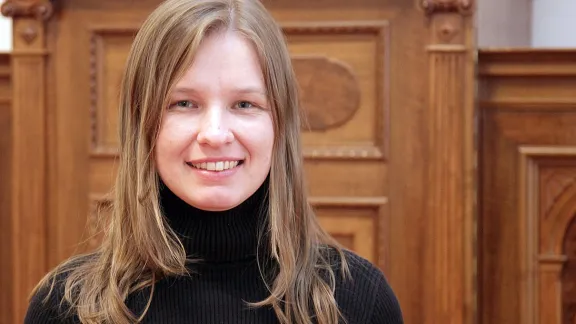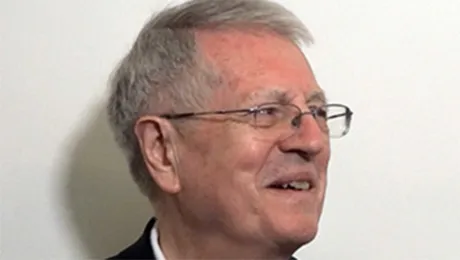
Ms Eneida Jacobsen. Dr Thilo Fitzner
The seven-member LWF study group on Lutheran engagement in the public space includes theology post-graduate student Ms Eneida Jacobsen. She shares insights and expectations from the Brazilian context.
Why is it important for the LWF to engage in this theological study process?
It is my understanding that all religions possess some form of public presence, be it in their temples, bells, public statements or, also, individual members who act in the world inspired by their faith traditions. To reflect upon this presence is a [further] step. Do we want to be a church that tries to hide itself behind the ringing of its bells? Or are we to engage as part of Christ’s body in the world in solidarity with victims of unjust political deliberations, exclusionary economic developments and harmful cultural and also religious dynamics?
What do you expect from this process for the LWF member churches in your region?
The church has a call to be there for others, to deeply care about God’s creation and the well-being of all. The task of our group is therefore not only to reflect on the contemporary meaning and implications of this call. It is also to think of ways of engaging in the public space that helps us to be not only faithful to the Lutheran Christian tradition but also makes our engagement meaningful from the view point of the broader public.
What do you see as important theological insights that should be articulated in this process?
I hope that Lutheran churches around the world, faced by the most diverse challenges, may benefit from the work of our study group. For me it is important to understand the public sphere as a communicative sphere. Only through dialogue—and here I mean the creative encounter between faith and reason, between faiths and between reasons—is it possible to establish an uninterrupted practice of discernment in the public discussion on the best ways to respond to social and political challenges, towards the solution of common problems. In the spirit of a public and democratic process, we are of course also thankful for contributions that may be suggested to us as we develop a statement on Lutheran engagement in the public space.
Ms Eneida Jacobsen, a member of the Evangelical Church of the Lutheran Confession in Brazil (IECLB), completed her undergraduate studies in reproduction rights and theology at the Lutheran School of Theology (Faculdades EST) in 2008. She is due to finalize her post-graduate studies in religion and the public sphere at the same institution in 2015.


